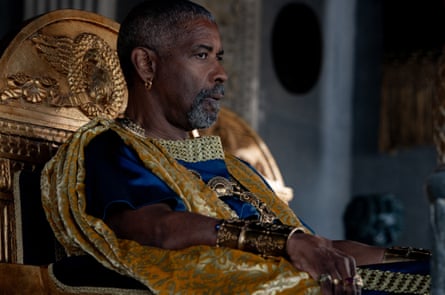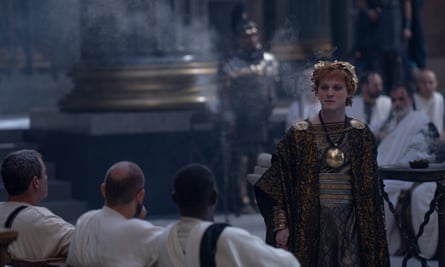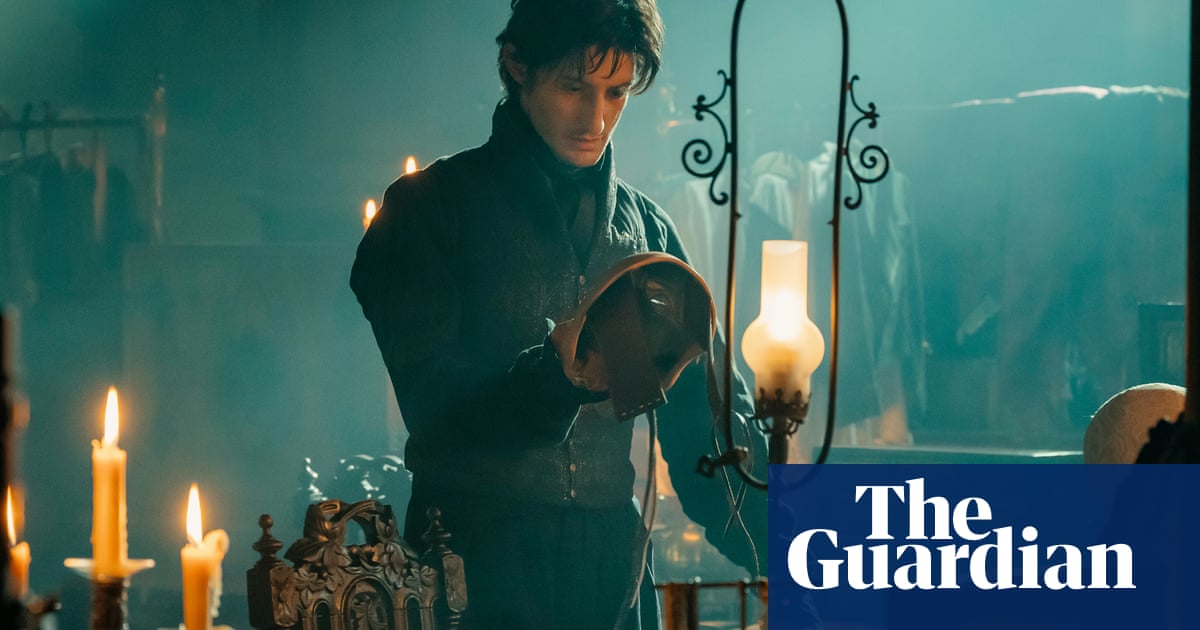What’s Latin for “Groundhog Day”? Once upon a time, Russell Crowe’s beefy hero Maximus in Ridley Scott’s sword-and-sandal classic Gladiator was the honest soldier outside the snickering metropolitan elite, out to gain vengeance and redeem Roman honour in the blood-spattered arena, his raw courage exposing the politicians’ contemptible decadence. His defiant cry “Are you not entertained?” spoke to the showbiz-political complex of our own time and when it was alleged last year that most men thought about ancient Rome every day, the suspicion was that what they were actually thinking about was … that film.
Now we are a generation along, and little has changed, in fact almost nothing. This sequel is watchable and spectacular, with the Colosseum created not digitally but as a gobsmacking 1-to-1 scale physical reconstruction with real crowds. Yet this film is weirdly almost a next-gen remake, effectively reincarnating almost every single narrative component of the original in a variant form, the events of the first film echoing in franchise eternity.
For me, its existence means injuring the original’s innocence, ever so slightly. Maximus was famously devoted to the memory of his murdered wife and son, though it seemed as if there had once been some emotional history, before his marriage, between him and the emperor’s daughter Lucilla (Connie Nielsen), who has a boy of her own. Well, that boy turns out to have been Maximus’s. Who knew? Maybe not Maximus.
At 28, Paul Mescal is younger than Crowe’s 36 when he took the lead in G1, but he is massively bulked up with a new sonorous Britspeak growl: charismatic and likable in the ways Mescal always is. He is young Lucius, who as a child made a chaotic escape from the moral cesspit of Rome and is grown to adulthood in separatist Africa Nova territory which now faces being subdued by the clumsy cruelty of the Roman empire; he is a soldier and his wife Arishat (Yuval Gonen) is no simpering hausfrau but a warrior also. There is no mention of a child but I have a feeling we might in years to come find out about a son hidden away from the danger of battle. The Romans’ tough, honest general Marcus Acacius (Pedro Pascal) does his duty but respects the Africans’ martial bravery and has no truck with decadent Roman politicians; he is effectively the new version of Maximus battling the Teutons.

Lucius is captured, sold into slavery and … yes … becomes a gladiator just like his dad, though intriguing and impressing his captors with an ability to quote Virgil. And just like his dad he confronts the lisping, sneering, drawling, unmanly ruling class like Joaquin Phoenix’s Commodus – but this time split into two: the co-emperors Geta (Joseph Quinn) and Caracalla (Fred Hechinger), each sporting panda-level eyeliner. As the slave-owner and slave-trainer, Denzel Washington inherits Oliver Reed’s role; he plays the cunning and ambitious Macrinus, who plans to parlay his warlord status into political power, a Roman Yevgeny Prigozhin.
In fact Washington almost steals the entire picture as Macrinus shrewdly exploits the gambling addiction of Tim McInnerny’s weak and duplicitous Senator Thraex. It is Washington who gets the line that might yet be this film’s social-media meme as he hisses into Thraex’s cringing face: “That, my friend, is politicsssssss – ah!” And as Lucius becomes a new insurgent superstar in this world of bread-and-circuses, a plot is hatched between Lucilla and Marcus Acacius to do away with the hateful Geta and Caracalla and reinstate the Republic.
It is impossible to avoid the pedantic deja vu in this film, or the feeling that its novelties are byproducts arrived at almost accidentally. Connie Nielsen’s Lucilla is the one female character in the film with agency; she has a difficult, unspoken relationship with our hero, just like the first time around, but which here creates a weirdly Oedipal energy. Lucius maybe comes close in his emotional confusion to Shakespeare’s Coriolanus, and Lucilla’s own scene in the gladiatorial arena has something almost kinky in it – though it’s probably obtuse to start finding kinky aspects to a story whose costumes are all so outrageously sex-positive.
after newsletter promotion

This is a sequel that isn’t afraid to get its hands dirty – it delivers the keynote scenes and moments for the fanbase (which is all of us) and the all-important gladiator setpieces have the right hallucinatory quality, as a sea-battle is re-enacted in the flooded arena or a vast rhino gets its scaly backside kicked. When Lucius has to fight vicious baboons in one scene, it almost looks like sci-fi. Gladiator v alien?
Ridley Scott is one of cinema’s modern marvels with his extraordinary run of high-energy pictures in the last few years delivered at a terrific storytelling gallop: the Rashomon nightmare The Last Duel, the true-crime melodrama House of Gucci and the excellent and underestimated Napoleon bio-epic. As for Gladiator II, he’s galloping back over old ground, galloping in a circle perhaps. But there is something awe-inspiring in seeing Paul Mescal’s triumphal march into the A-list.

.png) 1 month ago
11
1 month ago
11













































